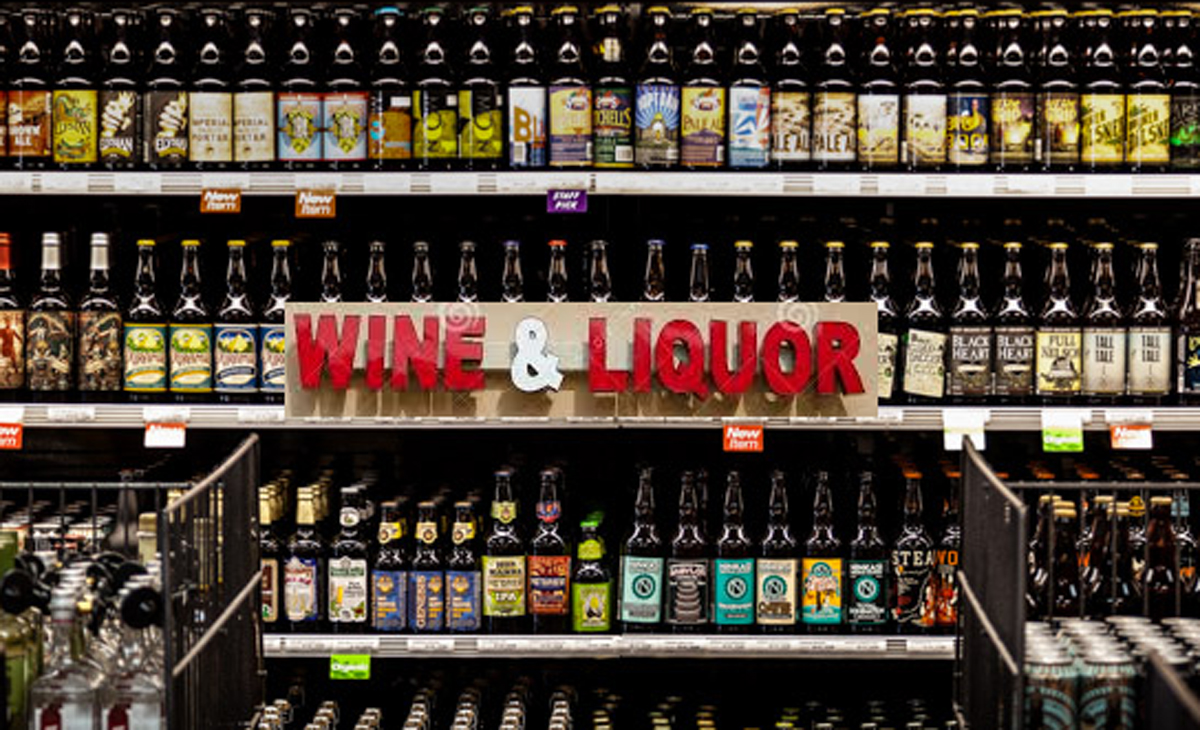Provision kept for regularization of sub-vends to benefit liquor lobby
Survey to be conducted for Benami ownerships
Mohinder Verma
JAMMU, Mar 1: Incredible it may sound but it is a fact that State Government has paved the way for opening of new liquor vends in the close proximity of religious places, educational institutions and hospitals by giving ‘unusual’ relaxation in the new Excise Policy, which has been made applicable from February 26, 2019.
In the Excise Policy 2018-19, which was notified vide SRO-240 dated May 29, 2018, it was mentioned that new liquor outlets of all types shall be at a minimum distance of 300 meters from the religious places, educational institutions, hospitals, public parks, nearest liquor shops/bars and in conformity with the provisions of J&K Excise Act, 1958 and J&K Liquor License and Sales Rules, 1984.
It was also mentioned that the words and figures “100 meters” appeared in SRO-157 dated March 30, 2017 shall be substituted with the words and figures “300 meters” for the grant of licenses for operating liquor shops at identified un-served locations.
However, under new Excise Policy 2019-20 issued vide SRO-128 dated February 25, 2019 and which will continue till March 31, 2020, ‘unusual’ relaxation has been given.
The new policy states: “New liquor vends shall be at a minimum distance of 100 meters from the religious places, schools, hospitals, nearest liquor shops and in conformity with the provisions of the J&K Excise Act, 1958 and Liquor License and Sale Rules, 1984”. This has clearly established that Jammu province will be further flooded with liquor shops.
It is pertinent to mention here that maximum number of existing liquor shops in the State are in Jammu province and Government has paved the way for opening of large number of more vends by reducing the distance from 300 meters to 100 meters.
This ‘unusual’ relaxation has been given on the pretext of arresting bootlegging and illicit distillation of liquor, which otherwise is very rare phenomenon in urban areas and confined only in rural parts of the State.
For determining un-served and under-served areas, tehsil will be the basic unit in the rural areas and Municipal ward will be the basic unit in the urban areas, the new Excise Policy states.
In the Excise Policy of 2018-19, there was no mention of regularization of operational sub-vends but in the new policy this provision has been kept. “The operational sub-vends shall be eligible for regularization after paying a premium of Rs 15 lakh and regular license fee as notified from time to time subject to fulfilling all requisite formalities in vogue for grant of a regular license”, the new policy states.
“Instead of making provision for regularization of sub-vends the Government should have opted for inviting bids for grant of fresh licenses for such locations”, official sources said.
It has also been mentioned that the liquor licenses shall be granted to the State subjects of Jammu and Kashmir only and those already having any type of license under the J&K Excise Act shall not be eligible for having the same type of license. However, any licensee can apply for or have a license of any other type.
The only positive point of the new Excise Policy is that Department of Excise shall undertake a fresh survey of all existing licenses and conduct forensic audit if required so as to detect any Benami ownership, ownership procured in violation of the provisions of J&K Excise Act, Liquor License and Sale Rules and circular instructions issued from time to time.
“The present policy for the grant of licenses for retail sale of liquor viz Bar with Hotel, Bar with Banquet, Bar with Restaurant or Cinema Theatre or Dak Bungalow, Unit Run Canteen by Army, Paramilitary Forces, Master Canteen etc shall continue subject to the final outcome of writ petitions pending in this regard”, reads the SRO-128 dated February 25, 2019.
As far as Social Responsibility Corpus Fund is concerned, it was mentioned in the Excise Policy of 2018-19 that department shall exhort all its stakeholders particularly all licensees to contribute a minimum of 2% of their annual profits towards Corporate Social Responsibility Fund.
However, under the new Excise Policy this provision has also been relaxed and now the liquor license holders will contribute a minimum amount of Rs 1500 per month (Type A), Rs 1000 per month (Type B), Rs 2500 per month (Type C) and Rs 3000 per month (Type F).
It is pertinent to mention here that Social Responsibility Corpus Fund is meant for educating the public about the ill-effects and hazards of drug addiction and drunken driving; providing ambulance service on National Highways and other emergency care equipment to hospitals in the shape of ventilators and oxygen concentrators etc; providing funds to the Traffic Department for purchase of breath analysers and rehabilitation of families involved in illicit liquor trade by enabling them to take up alternate means of livelihood and their skill development.


